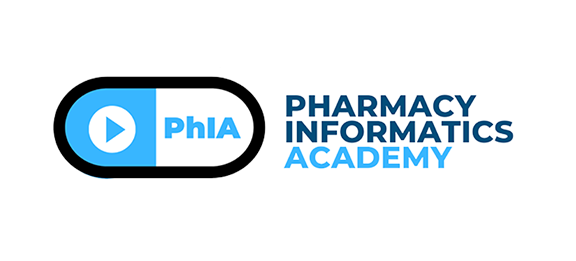How to Stand Out as a Pharmacy Informatics Resident
How to Stand Out as a Pharmacy Informatics Resident
With the growing number of applicants and increased competition in obtaining a pharmacy informatics residency, standing out has become considerably more difficult for students. There has been a surge of interest as more students are becoming aware of the opportunities a career in pharmacy informatics can offer, but the number of informatics residencies has not been able to keep up with the demand. While this can seem overwhelming, there are some things that students can do in order to rise above the rest.
Show Interest
The age-old pharmacy school advice that you should stay away from asking questions in a residency interview that can be easily answered with a quick glance at the program’s website still holds true – but the opposite also holds true. If you’re able to reference unique opportunities or research you have gleaned from the program’s website or can demonstrate insight into the organizational mission, vision, or values of the organization during interviews, it will stand out that you have done your homework and have a genuine interest in the organization. Rather than waiting until Midyear or even P4 year, there’s nothing stopping you from reaching out to the residency program director, preceptors, residents, or even former residents to connect and learn more. If the residency is local, arranging a visit to the site can help give you a better idea of the setup and culture. Looking through news articles online can help give you some insights into where the hospital has come from and where it’s going. The more you know when you talk to programs, the more you can demonstrate that your interest in the program is more than skin deep and that you are serious about applying. And a major side benefit is that once you have a better understanding of the residencies you’re interested in, you can avoid spending money and time applying to residencies that you feel wouldn’t make a good fit for you.

Letters of Reference
While it may be surprising that it needs to be stated, students should only ask for letters of reference from preceptors or supervisors who will write positive letters. A bad letter of reference that raises concerns about a candidate can very quickly lead to that candidate being excluded from consideration. Having regular and honest conversations with your preceptors during rotations related to your progress, what you are doing well, and your opportunities for improvement are important to your growth as a future pharmacist or pharmacy informaticist. Being open to feedback and suggestions for improvements as well as discussing concerns can help prevent any surprises down the line and help give you additional perspectives on your strengths and weaknesses.

Get Involved
Residencies, including informatics residencies, are looking for well-rounded candidates. Banking on a good GPA and an interest in informatics alone may not get you to the desired finish line. Showing that you were actively engaged in leadership positions within organizations, working on extracurricular projects, participating in community service, giving presentations, having your name on publications, and participating in informatics experiences can help you land an interview. However, your ability to speak to your accomplishments in each of those experiences and give interviewers insight into why you would be a great fit for their institution is what will ultimately land you a position. It may sound daunting to build up your credentials with everything else going on in pharmacy school, but if you work with your dean’s office to find opportunities and challenge yourself to take on a little extra, you’ll be in a much better position to make the cut.

Clinical Experience
While it is tempting to assume that informatics residencies are going to be more lenient than traditional residencies when it comes to clinical rotations, they aren’t. Informatics residencies want candidates that have a very solid clinical foundation because being able to understand the clinical perspective helps inform informatics decisions that will impact nurses, pharmacists, physicians, and others on the front lines. For students, this means strategically selecting as many challenging clinical APPEs as reasonably possible in order to build a good foundation. When on rotations, it can help down the line if students keep a daily journal of interesting clinical patients and interventions that they made. Reviewing this journal prior to attending interviews can help enrich and strengthen answers to common interview questions.

Informatics Experience
Pharmacy informatics residency programs are aware that extensive immersion in informatics is rarely possible for students and practical knowledge of informatics beyond a baseline may be feasible for students. The main things programs are looking for are that candidates have an understanding of what pharmacy informatics is and that they can speak to why they are interested in pursuing a career in the field. Having informatics experience that you can speak to, however small, is important to be able to answer these questions in a convincing manner. Shadowing a local informatics department is a great start but volunteering or completing projects for one is even better because it provides a much richer exposure. Another option is to see if you can get an informatics related master’s degree (e.g. MHIT, MHIIT) or certificate (e.g. ASHP’s Certificate in Pharmacy Informatics, CAHIMS). Students should contact their dean’s office to explore potential options through the school and reach out to local hospitals with informatics teams to identify potential opportunities.

Branding
Generally speaking, residency interviewers are looking for strong candidates who have an open mind, are willing to learn, and appear to be a ‘good fit’ for the organization and the department. It can really help to find your own personal brand that will convey to them who you are in a clear and succinct way. You should consider what you are passionate about, both personally and professionally, and align your past experiences in order to present yourself as a desirable pharmacy informatics residency candidate. It really is the difference between presenting interviewers with a set of raw ingredients versus a well-prepared meal.


